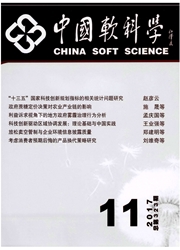

 中文摘要:
中文摘要:
本文利用357份调查问卷数据,采用层级回归和“拔靴法”,通过构建一个有调节的中介模型分析了职场欺凌对研发人员知识分享意愿的影响机制。分析结果显示:职场欺凌对研发人员的知识分享意愿有显著的负向影响,组织认同在其中起中介作用;神经质在调节职场欺凌与组织认同之间关系的同时也调节了组织认同在职场欺凌与知识分享意愿关系中的中介作用;只有当研发人员具有较高的神经质水平时,组织认同在职场欺凌与知识分享意愿关系中的中介作用才会显著。这些研究结果在理清职场欺凌影响机制,丰富职场“冷”暴力理论的同时,对企业管理实践也具有一定的指导意义。
 英文摘要:
英文摘要:
By surveying 357 researchers from high and new technology industries of Jiaodong Peninsula, we set up a moderated mediation model to investigate the relationship between workplace bullying and knowledge sharing intention. With the method of hierarchical regression and the bootstrapping method, the empirical results indicated that workplace bullying has a negative effect on the knowledge sharing intention through the mediating effects of organizational identification. It was also confirmed that the neuroticism personality not only moderated the effect of workplace bullying on organizational identification, but also moderated the mediated path through organizational identification, and this indirect effect is much stronger when researchers have a high level of neurotieism. The study clarifies the relationship between workplace bullying and knowledge sharing intention, and enriches the theory of workplace "cold" violence, besides, the findings tutor the action of corporate practice.
 同期刊论文项目
同期刊论文项目
 同项目期刊论文
同项目期刊论文
 期刊信息
期刊信息
